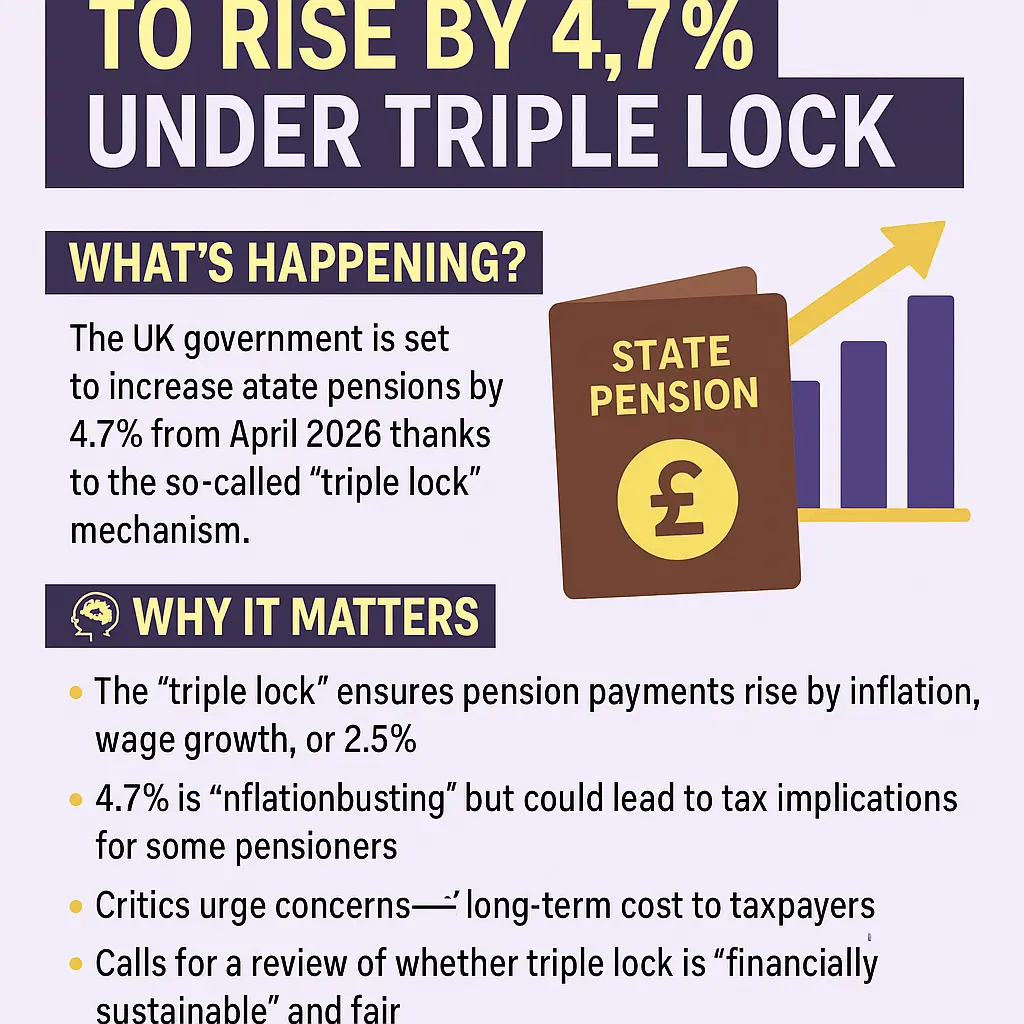If confirmed, the full new state pension (for people retiring after April 2016) would jump from £230.25 to about £241.05 per week—roughly £12,535 per year. The Guardian +2 MoneySavingExpert.com +2
The old/basic state pension (for those who retired before 2016) is expected to go from £176.45 to ~£184.75 per week. The Guardian +2 MoneySavingExpert.com +2
🧠 Why it matters
- The triple lock ensures pension payments rise by whichever is higher: inflation, average wage growth, or 2.5%. The Guardian +2 MoneySavingExpert.com +2
- This 4.7% bump is “inflation-busting,” meaning it should help pensioners keep up with or stay ahead of rising living costs. The Guardian +2 The Independent +2
- But that boost pushes state pension income very close to the UK’s personal allowance for income tax (£12,570). As a result, many pensioners could start paying tax on their state pension for the first time around 2027—unless personal allowance thresholds change. The Guardian +2 The Independent +2
- Critics argue that while pensioners might enjoy a short-term income lift, the long-term cost to taxpayers and the strain on public finances—including government pensions spending—could be substantial. CIPP +3 The Guardian +3 Trustnet +3
⚖️ The debate: Is the triple lock sustainable?
The triple lock was introduced in 2011 to protect pensioners from inflation and declines in real income. The Guardian +2 The Independent +2
Supporters say it prevents pensioners from being left behind—especially as many older people rely heavily on state pensions or have fewer savings. The Guardian +1 But critics are increasingly warning it may not be financially sustainable:
- The policy may burden younger and working-age taxpayers, who are effectively funding the pension increases. The Guardian +1
- Forecasts suggest pension spending will rise sharply, making it harder for the government to meet its fiscal goals. Trustnet +2 The Guardian +2
- Some experts argue the triple lock is becoming politically risky, asking whether the pension increase should rely on wage growth or inflation—or whether the system needs reform. Trustnet +1
The Labour government has pledged to keep the policy in place for the current parliamentary term, but there’s growing pressure to review or change it in future. The Independent +2 The Guardian +2
✅ Bottom line
For now, the 4.7% rise feels like good news for pensioners—more money in their pocket at a time of high living costs. But it also opens up new questions: Will pensioners soon be taxed on income they once received tax-free? Can the UK government sustain the cost of such generous pension increases long-term? And are there fairer alternatives that don’t overburden younger generations?
Keep an eye on updates in November’s Budget, where the government will confirm the final pension increase and potentially signal whether the triple lock will stay or evolve.

Comments 0
No comments yet. Be the first to share your thoughts!
Leave a comment
Share your thoughts. Your email will not be published.